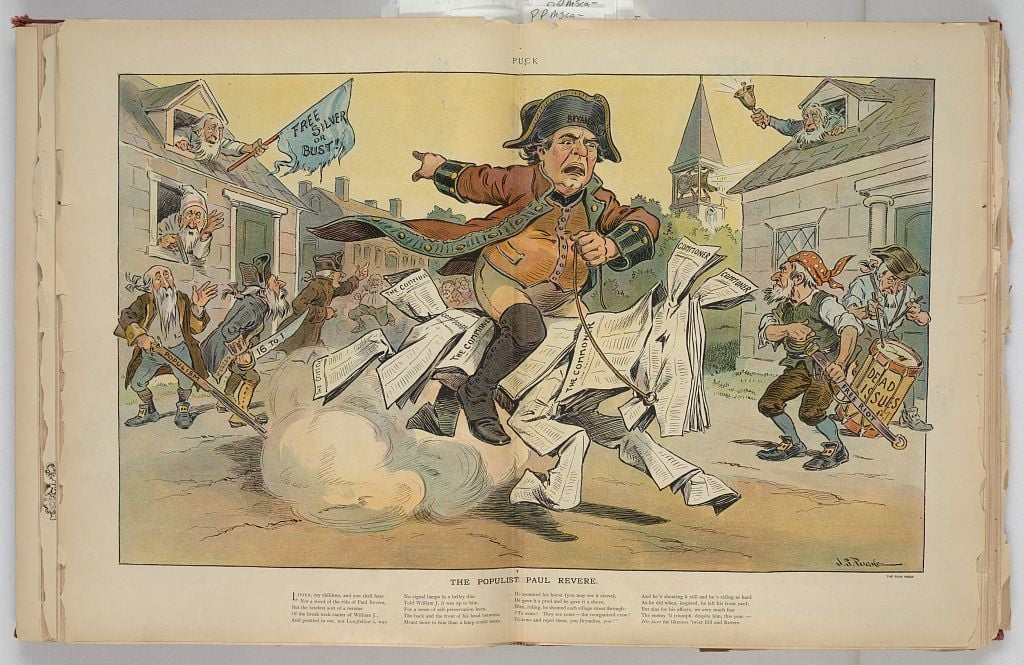Blog
The Changing Political Environment: A Look at Agents of Change and Populism in America


The Changing Political Environment: A Look at Agents of Change and Populism in America
The American political landscape has undergone dramatic shifts in recent decades, fueled by the rise of populist rhetoric and the growing influence of personal branding over ideological loyalty. Figures such as Barack Obama, Donald Trump, Marjorie Taylor Greene, and Elizabeth Warren have reshaped political narratives, reflecting broader cultural changes in how Americans engage with politics.
Increasingly, political movements resemble fandoms, where allegiance to individual leaders often supersedes party loyalty. This shift mirrors trends in sports, where loyalty to teams is giving way to a focus on individual stars. Just as LeBron James has cultivated a personal following across multiple teams, political figures today command brand-driven loyalty that transcends traditional party structures.
Populism from Both Sides: The Growing Divide
Populism in America is no longer confined to one ideological camp; it manifests on both the right and the left, each fueled by frustration with the political establishment. Donald Trump capitalized on public dissatisfaction by presenting himself as an outsider intent on disrupting the status quo. His rhetoric, from promises to “drain the swamp” to his infamous claim that he could “stand in the middle of Fifth Avenue and shoot somebody” without losing voters, emboldened extreme elements within the electorate.
This dangerous polarization became evident in real-world events, such as the storming of the U.S. Capitol on January 6, 2021, and the assassination attempt on Trump in 2024. When leaders normalize extreme rhetoric and demonize opponents, it heightens the risk of political violence. Marjorie Taylor Greene exemplifies this trend on the far-right, using combative rhetoric and conspiracy theories to rally her base. Her brand of populism promotes a fundamental rejection of government institutions and a radical call for change, reinforcing a deepening divide in American politics.
On the left, figures like Elizabeth Warren harness populist sentiment in a different way, advocating for corporate accountability and economic reform. While Warren’s approach is less overtly combative than her right-wing counterparts, it similarly taps into widespread disillusionment with the political elite. Her populism reflects movements like Occupy Wall Street, which channeled public anger toward economic inequality and corporate influence over government. Though left-wing populism typically seeks reform rather than revolution, both versions stem from the same root—public frustration with entrenched power structures.
The Sportification of Political Rallies and Brand Loyalty
One of the most striking manifestations of this shift is the transformation of political rallies into high-energy spectacles. Once reserved for election season, rallies have become year-round events, bearing more resemblance to concerts or sports matches than traditional political gatherings. These events generate intense emotional investment, fostering tribal loyalty among supporters. Attendees chant slogans, wave flags, and engage in displays of devotion that extend beyond policy into the realm of personal allegiance.
Political figures now function as celebrity brands, with their followers adopting their messaging and aesthetics much like sports fans don their favorite team’s jersey. This brand loyalty shifts attention away from substantive policy discussions, reducing political engagement to a spectator event where the focus is on personality rather than governance. The rise of social media further amplifies this effect, allowing politicians to cultivate direct relationships with supporters in a way that bypasses traditional party structures.
The Populist Appeal of Figures Like Luigi Mangioni: A Dangerous Intersection of Branding and Violence
The case of Luigi Mangioni highlights the risks associated with this personal-brand-driven populism. Mangioni, an emerging political figure known for his anti-establishment rhetoric and harsh criticism of corporate elites—particularly in the healthcare industry—has attracted fervent support despite legal controversies. His rise illustrates how populist figures can command intense loyalty, even in the face of legal scrutiny.
Following a highly publicized clash with the CEO of United Healthcare, Mangioni’s supporters launched a GoFundMe campaign to finance his legal defense, raising substantial funds in a short period. This unwavering financial and emotional investment in a single figure underscores how deeply personal branding now drives political allegiance. When movements become centered around individuals rather than ideas, it creates a dangerous environment where followers may rationalize extreme actions in the name of their chosen leader.
A Nation Divided by Populism and Discontent
At the heart of this transformation is the increasing sportification of politics, where emotional investment and personal loyalty replace institutional trust. Just as sports fans rally behind individual athletes, political supporters are now more inclined to align themselves with charismatic leaders rather than parties or ideological principles. This shift has profound implications for democratic governance. When politics becomes primarily about identity and emotional attachment rather than substantive policy debates, it fosters division and weakens institutional stability.
Figures like Trump and Obama have become symbols of political triumph or defeat, depending on one’s perspective. Their personal brands dominate discourse, turning politics into a contest of personalities rather than a debate over governance. This erosion of institutional loyalty in favor of personal devotion makes democracy more susceptible to instability, as the focus shifts away from collective progress and toward the fortunes of individual leaders.
The Future of American Democracy
Populism and personal branding have reshaped the American political landscape, merging cultural, economic, and emotional elements into a complex new reality. The sportification of politics has created an era of hyper-engagement, but at what cost? As loyalty to institutions continues to fade, the challenge moving forward will be to balance dynamic leadership with the preservation of democratic principles. If the trend toward personality-driven politics continues unchecked, the nation risks further division, eroding the foundational structures that sustain democratic governance.
